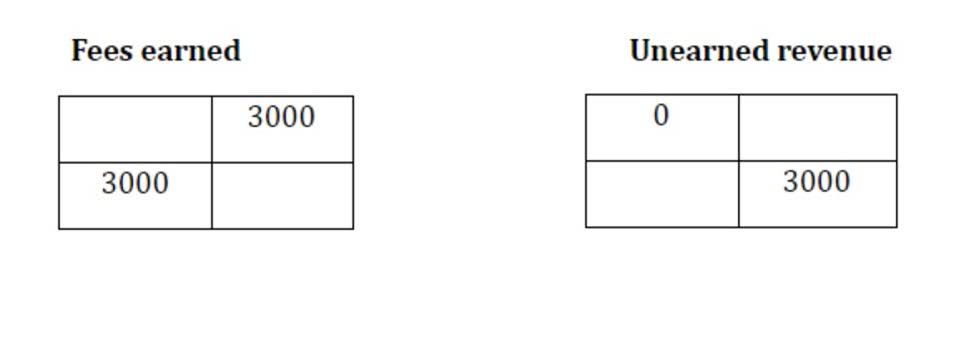
Incremental cost, also referred to as marginal cost, is the total change a company experiences within its balance sheet or income statement due to the production and sale of an additional unit of product. It’s calculated by analyzing the additional expenses incurred based on the addition of the unit. Incremental costs may be classified as relevant costs in managerial accounting. Incremental cost is how much money it would cost a company to make an additional unit of product. Analyzing incremental costs helps companies determine the profitability of their business segments. Alternatively, once incremental costs exceed incremental revenue for a https://www.instagram.com/bookstime_inc unit, the company takes a loss for each item produced.
Most WantedIFRS Terms
- However, the $50 of allocated fixed overhead costs are a sunk cost and are already spent.
- Understanding incremental costs can help a company improve its efficiency and save money.
- Unfortunately, most of the time when manufacturers take on new product lines there are additional costs to manufacture these products.
- Incremental costs help to determine the profit maximization point for a company or when marginal costs equal marginal revenues.
- Therefore, the cost to produce the special order is $200 per item ($125 + $50 + $25).
- These can include research and development, manufacturing systems, distribution channels, marketing campaigns and product testing.
Incremental analysis is useful when a company works on its business strategies, including the decision to self-produce or outsource a process, job, or function. This allocation can even change in the future course of business of ABC Ltd. when supposedly, if it chooses to drop product ‘X,’ then product ‘Y’ or any other product might become the https://www.bookstime.com/ primary user of the cost. For the past 52 years, Harold Averkamp (CPA, MBA) hasworked as an accounting supervisor, manager, consultant, university instructor, and innovator in teaching accounting online. For the past 52 years, Harold Averkamp (CPA, MBA) has worked as an accounting supervisor, manager, consultant, university instructor, and innovator in teaching accounting online.

Absorption Costing vs. Variable Costing: What’s the Difference?

As a third example, the sale of a subsidiary includes the legal costs of the sale. Incremental costs are also evaluated in overall business strategies. For instance, a company merger might reduce overall costs of because only one group of management is required to run the company.

Marginal Benefit vs. Marginal Cost: What’s the Difference?
Get ready to crunch some numbers and determine the baseline cost, or as I like to call it, the ‘pre-incremental’ cost. Therefore, it is advisable to conduct a thorough cost-benefit analysis before changing a supplier and explore alternative ways of improving performance through collaboration or joint problem-solving. The company is not operating at capacity and will not be required to invest in equipment or overtime to accept any special order that it may receive. Then, a special order arrives requesting the purchase of 15 items at $225 each. Incremental analysis is a problem-solving method that applies accounting information—with a focus on costs—to strategic decision-making.
- Managers can consider analyzing past financial reports, direct labor and overhead expenses, among other areas covered over time in performing this task.
- Incremental analysis is a problem-solving method that applies accounting information—with a focus on costs—to strategic decision-making.
- Economies of scale occur when increasing production leads to lower costs since the costs are spread out over a larger number of goods being produced.
- Therefore, knowing the incremental cost of additional units of production and comparing it to the selling price of these goods assists in meeting profit goals.
- Since incremental costs are the costs of manufacturing one more unit, the costs would not be incurred if production didn’t increase.
In addition to the immediate costs of purchasing and installing new equipment, businesses must also consider long-term costs such as the cost of maintenance and repairs. These ongoing expenses can add up and impact the profitability of the investment. Expanding a product line involves additional expenditures on production, storage and management capacity for new products with varying qualities and characteristics. The company may face disruptive transition costs in trainings, infrastructure updates or acquisitions to cover the increase in demand. It s critical to take into account all increments of cost when estimating whether it’s beneficial or not to expand your product line.
- For example, when the 2,000 additional units are manufactured most fixed costs will not change in total although a few fixed costs could increase.
- Incremental analysis is useful when a company works on its business strategies, including the decision to self-produce or outsource a process, job, or function.
- While the company is able to make a profit on this special order, the company must consider the ramifications of operating at full capacity.
- Opportunity cost is the value of the next best alternative that must be forgone in order to pursue a certain action or decision.

When calculating incremental cost, it is important to properly identify all relevant costs that will increase as a result of producing an additional unit. These costs may include direct labor, materials, and manufacturing overhead. On the other hand, costs that do not increase with an increase in production, such as fixed costs, are not considered incremental cost definition incremental costs. To calculate incremental cost, companies compare the cost of producing the first unit with the cost of producing the additional unit. Incremental cost refers to the additional cost incurred by a company when producing an additional unit of a product or service. In other words, it is the cost increment that occurs when the level of production or sale of a product increases.
Incremental Cost: Definition, How to Calculate, and Examples
Also, fixed costs can be difficult to attribute to any one business segment. Understanding incremental cost is critical in developing pricing strategies, making production decisions, and assessing the impact of changes in production levels on profitability. By calculating incremental cost, businesses can determine the most profitable level of production and adjust their operations accordingly. Failure to consider incremental costs may lead to overproduction, which could negatively impact profitability.

